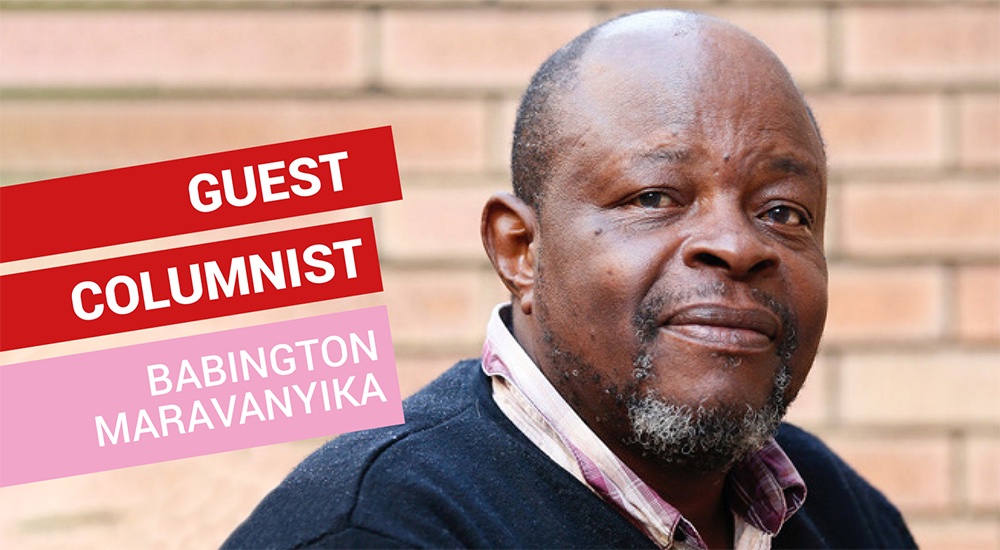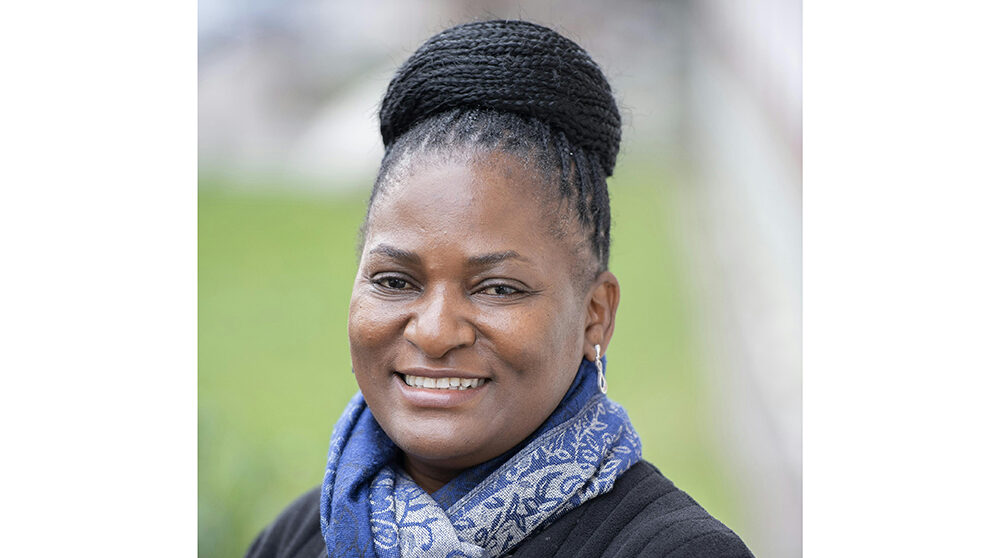In my opinion, the recent events in Zimbabwe are tantamount to a coup, and one fully supported by the ruling African National Congress (ANC), and by extension, also by the South African government, writes Babington Maravanyika, political analyst and author, based in South Africa.
The opinions expressed in this article are those by the author.
South Africa, which many people across the world had viewed as a beacon of democracy in Africa has just lost that image following President Cyril Ramaphosa’s comments regarding the sham election held in Zimbabvwe on August 23, 2023, and widely condemned across the globe. The election was also strongly condemned by the Southern Africa Development Community (SADC), to which South Africa is a member.
The fraud involved in the running of the election by the so-called Zimbabwe Elections Commission (ZEC) was so brazen and naked that many people started calling ZEC the Zanu PF Elections Commission. Among the glaring acts of fraud was the delimitation exercise which did not adhere to the country’s constitutional provisions and was meant to favour the ruling party Zanu PF. Another act of fraud was the failure to release the voters’ roll for public scrutiny or at least scrutiny by contesting political parties as required by the Zimbabwe Constitution.
The result of the deliberate act of omission was that many voters failed to find their names on the voters’ roll on voting day, while some realised that while their names appeared on the roll, they were supposed to vote in constituencies tens or hundreds of kilometres away from the constituency for which they registered to vote in.
During election day, a shadowy organisation called FAZ openly intimidated people in the rural areas to vote for the ruling party by registering their names before they went into the ballot box, and threatening to punish those who would vote for the opposition. On voting day, voting started very late at polling stations in Harare, Bulawayo and Mutare, known strongholds of the opposition Citizens’ Coalition for Change (CCC).
In spite of all this and more, President Ramaphosa embarrassingly defended the outcome of the election, saying there was nothing like a perfect election anywhere in the world. He went on to attend the inauguration of Emmerson Mnangagwa as president although, to my knowledge all observer missions except the one from Palestine, declared the elections as not free and unfair.
Ramaphosa was one of only three heads of state to attend the much shunned inauguration, and this speaks volumes about South Africa’s position when it comes to democracy. Earlier on just before the elections were held, ANC secretary general Fikile Mbalula labelled CCC leader, Nelson Chamisa as a puppet of the West, for reasons better known to Mbalula himself. Are Ramaphosa and Mbalula supporting Zanu PF because they are stupid? No. The political dynamics involved in all this politicking is deeper than meets the eye.
My personal opinion is that, because South Africa has openly aligned itself with the East –particularly Russia and China, and has become openly hostile to the US, it does not want a government which will be politically friendly to the US in neighbouring Zimbabwe. By having Mnangagwa in power in Zimbabwe, South Africa is also sure to maintain its position as the economic powerhouse in Southern Africa. Ramaphosa and his colleagues in the ANC know that if Nelson Chamisa becomes president of Zimbabwe, it may be a matter of a decade or so before it challenges South Africa economically, especially considering the rate at which SA’s economy is declining.
A prosperous Zimbabwe is not good for the ANC’s hold on power because South Africans will start comparing the progress in Zimbabwe under a new government, to the decline of their country under ANC rule. A new Zimbabwe under Nelson Chamisa would not only attract international investment, but would also result in some companies moving from SA to Zimbabwe. Skilled Zimbabweans working in South Africa are likely to go back home under a new dispensation in Zimbabwe, so are unskilled Zimbabweans who are generally doing the donkey work in SA. This would leave South Africa with a serious skills and cheap labour shortfall.
A prosperous Zimbabwe is not good for the ANC’s hold on power because South Africans will start comparing the progress in Zimbabwe under a new government
The revival of manufacturing industries in Zimbabwe would not only see a big dent in South Africa’s exports, but may actually result in towns like Musina (a border town) turning into ghost settlements as they are 90 percent dependent on business from Zimbabweans who come to shop for groceries and other items they cannot get or are too expensive in Zimbabwe. Ramaphosa and his colleagues are aware of all this, hence the decision to support Zanu PF so as to maintain the economic status quo.
Supporting Mnangagwa’s regime will result in more Zimbabweans illegally crossing into South Africa in search of greener pastures, but to the ANC this is a better evil, even if it means the loss of more jobs to foreigners who are prepared to work for peanuts. What the Ramaphosa and the ANC are doing has nothing to do with what is good for the South African public, but for ANC politicians.
Crime in South Africa continues to spiral, and one of the major causes of crime is undocumented foreigners who cannot be traced after committing crimes as their fingerprints are not on SA’s data base. This seems not to matter to ANC politicians whose priority is to hold on to power at any cost to the public and the country. Ramaphosa and ANC politicians also do not care about the country’s image on the global stage as long as they remain in power.
Some people have said Ramaphosa’s senseless position on the Zimbabwe elections shows that the ANC does not care about free and fair elections, and that it might actually be preparing to rig future elections as its political fortunes continue to wane in the face of a declining economy and rising unemployment and crime.
As for SADC and what it can do with regards the disputed elections in Zimbabwe, I do not believe much is going to come out of the now divided regional body. South Africa, Mozambique the Democratic Republic of Congo and Namibia have, by congratulating Mnangangwa and/or attending his inauguration, shown their support for the dictator, while the rest of SADC states and Africa in general seem to be of the opinion that Mnangagwa and his government are illegitimate and that a new election must be held.
Already Zimbabwe is labelling those who condemned the election, puppets of the West. While SADC says it has produced its final report, Mnangagwa’s spokesman George Charamba has said the SADC report will remain a preliminary one until it has been assessed by the council of SADC’s foreign ministers in February next year, and then finally by SADC heads of state at a summit which is likely to take place only in August 2024. If what Charamba said is true, then by that time the electoral dispute would almost have been forgotten, and the opposition might have to wait for the next election in 2028.
It is also most likely that most SADC leaders will support one of their own, incumbent Emmerson Mnangagwa. As the late Zimbabwean Professor John Makumbe once said, African regional bodies are clubs for leaders to promote their own interests, which makes opposition leader Nelson Chamisa’s chances of success very slim.
Besides depending on what SADC does, what other options does the opposition in Zimbabwe have? My personal opinion is that not much, unless the opposition leader Chamisa is prepared to call for Tunisia-style demontrations and risk being jailed. So far he has not shown much appetite for calling for such demonstrations and lose his freedom. I believe the major reason why the Mnangagwa regime has kept the popular opposition politician Job Sikhala in prison for more than 400 days now is because of his militancy. I have no doubt that if Sikhala was out of prison, by now he would have called for demonstrations, and his call would have been heeded the people who I believe are now ripe for such demonstrations.
My take is that if Chamisa fails to take decisive action and confront the Mnangagwa regime through demonstrations, the militant Job Sikhala or Jacob Ngarivhume who is also currently incarcerated by the Mnangagwa regime, may dethrone him as leader of the CCC as people have realised that a soft approach will not dislodge Zanu PF from power. In African politics, jail is almost a necessary passage towards power, and those who are scared of being jailed rarely achieve their goals.
Babington Maravanyika
Journalist, political analyst and author of a book titled South Africa a gwara gwara state. Based in South Africa
Read also


